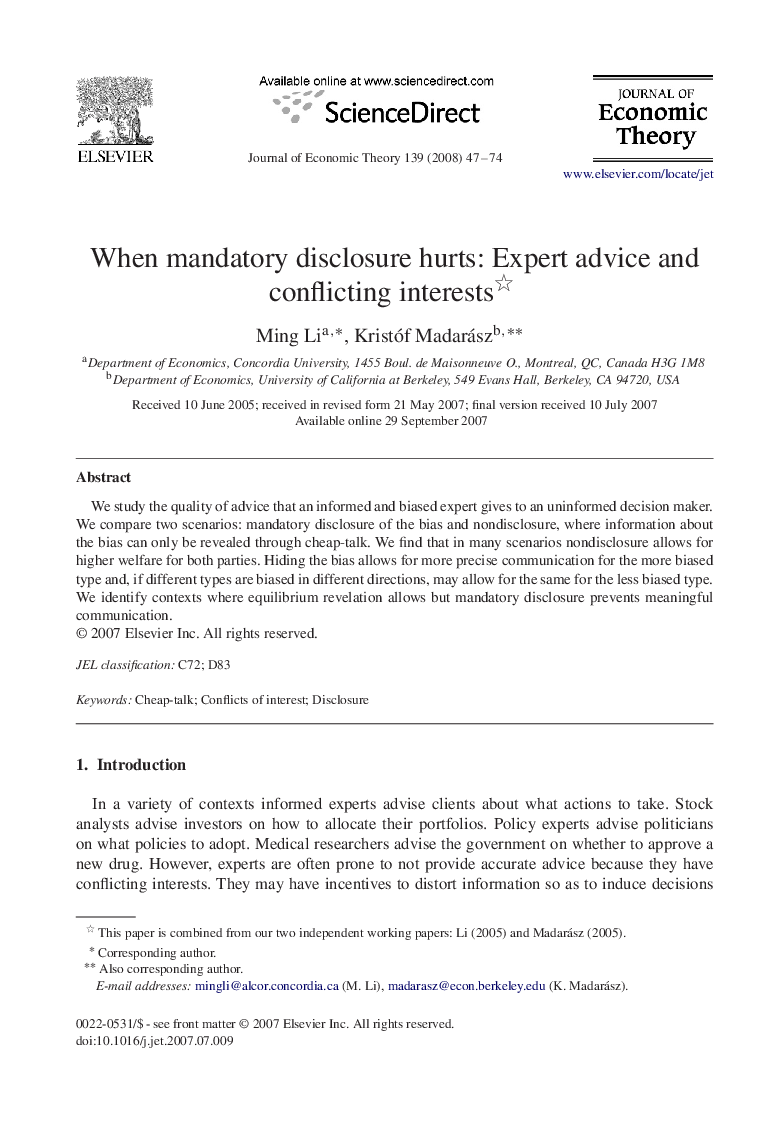| Article ID | Journal | Published Year | Pages | File Type |
|---|---|---|---|---|
| 957565 | Journal of Economic Theory | 2008 | 28 Pages |
Abstract
We study the quality of advice that an informed and biased expert gives to an uninformed decision maker. We compare two scenarios: mandatory disclosure of the bias and nondisclosure, where information about the bias can only be revealed through cheap-talk. We find that in many scenarios nondisclosure allows for higher welfare for both parties. Hiding the bias allows for more precise communication for the more biased type and, if different types are biased in different directions, may allow for the same for the less biased type. We identify contexts where equilibrium revelation allows but mandatory disclosure prevents meaningful communication.
Keywords
Related Topics
Social Sciences and Humanities
Economics, Econometrics and Finance
Economics and Econometrics
Authors
Ming Li, Kristóf Madarász,
